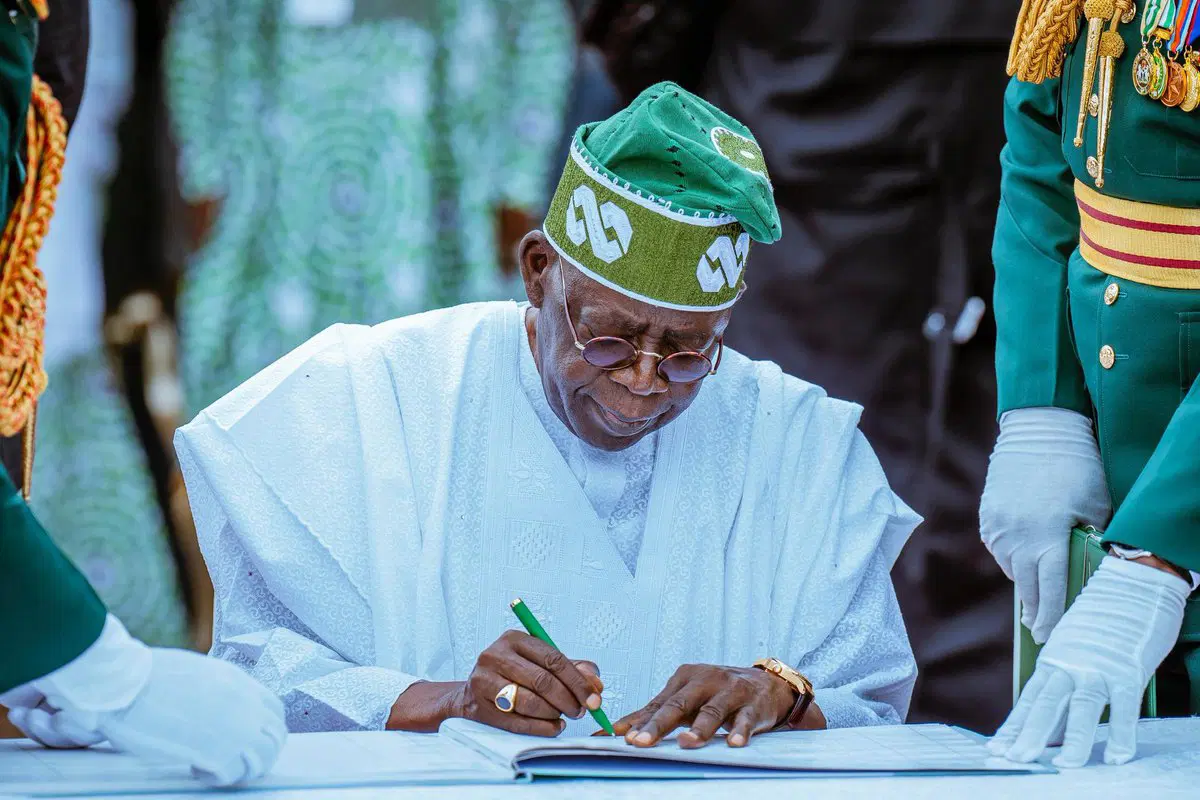
HELLO, Mr President. My enlightenment on how to build strong institutions continues this morning. In terms of institutional violations, the Buhari administration imposed its brand of anti-politics that undermined the secular and traditional institutions of the state. He established a neo-patrimonial network of quislings. Notably, key federal appointments, both in the security and state bureaucracy, were put in the hands of Buhari’s kinsmen in clear violation of the federal character provisions of the 1999 Constitution as amended (The Guardian, 2023).
Under his watch, citizens’ rights were violated. Sambo Dasuki, former National Security Adviser, Ibrahim El-Zakzakky the Leader of the Shiite movement in Nigeria, and Omoyele Sowore, the publisher of Sahara Reporters were detained in violation of court rulings. Not enough, the homes of Judges were raided at midnight to cow them while Justice Onnoghen, a sitting chief judge of the country, was humiliated out of office (Akhaine, 2017).
Mr President, your administration has witnessed policy confusion and corporatism that have promptly earned you the sobriquet of an emperor cast in the headgear of the Egyptian Pharaohs and the Swastika of the Nazi leader, Adolf Hitler. Without consultation, or do I say ill-advised, you destroyed the fabric of the nation by the twin policy of oil-subsidy removal and floating the national currency ostensibly to curb corruption and arbitrage in the system respectively. This is the quintessential output of weak institutions. Whether the country will survive the enormous immiserisation of the people by your administration remains to be seen. It is a known fact that palliatives, a knee-jerk response to hunger in the land, have not helped.
Both the legislature and Judiciary have performed below standard and have been captured by the executive. The legislature is qualified as the guts of democracy. Since 1999 and now, the country has been saddled with a ‘long parliament’, that is weak and beholden to the executive.
Alhaji Ahmad Lawan, the Senate President, of the 9th National Assembly unabashedly said that anything brought in by the president was right and would always be passed, in other words, the president can do no wrong. In his words, “I want to assure you that any request that comes from Mr President is a request that will make Nigeria a better place in terms of appointments or legislation, and the Senate will act expeditiously to ensure that we play our part in the confirmation or passing of legislation appropriately” (Sahara Reporters, November 22, 2019). The leadership of the 10th Assembly is in the same cast.
As of old, the judiciary’s hands are tied, the lady of justice, though blindfolded, now bows to monetary inducement. David-Barrett (2023, para. 35) has rightly noted, “Judicial institutions come to be used as political weapons by the captor elites, leaving ordinary people with little access to justice or redress, hitting underrepresented minorities particularly hard.” If the pillars of the state are compromised, the state capture process is completed.
I focus here on the implications of weak institutions for development. Development is taken here to mean the ability of a state and its people to harness the national productive forces for the good of all in society, ensuring that we all live in human dignity. The greatest threat to the realisation of the societal goal of development is weak institutions.
It is again not superfluous to restate the observation of Claude Ake aforementioned to the effect that development was never on the agenda. Without a doubt, development is merely rhetoric of state actors to hoodwink the general public and create the illusion of governance, put in other words, to register the presence of government.
Corruption is a by-product of weak institutions, and weak institutions allow free-riders to satisfy their interests while development is off the agenda. It is the most salient in the process of resource accumulation. The biggest conduit pipe for corruption is procurement. According to HEDA Resource Centre (2022), over 17 trillion Naira (about 35.4 billion US Dollars) was involved in a sampled pending high-profile corruption cases in Nigeria. This money is the equivalent of Nigeria’s 2022 budget. Nigeria’s 2022 budget was 17.1 trillion Naira with a deficit of 6.4 trillion Naira. Over 90 per cent of those corruption cases relate to either procurement of goods or services. The gravity of the heist in government is further underlined by the discoveries in Panama Papers, the Ikoyi cash saga, Arms deal corruption, Diezani’s alleged $20 billion embezzlement, the controversial disappearance of $16 billion earmarked for the Independent Power Project (IPP), and the perennial oil subsidy scandal.
More critical is the effect of weak institutions on the economy. State captors usually tilt the economy towards the sectors that they can control, thus reducing opportunities in other sectors, which invariably suffer. State policies are tilted towards commodity-based and rent-based sectors. Therefore, economic diversification in a captured state is usually dead on arrival (David-Barrett, 2023).
In Nigeria, before the complete capture of the elite, the country’s earnings came from diversified and decentred agricultural products – cocoa, cotton, and groundnut, just to mention a few. In essence, it made state capture difficult, given the large peasantry involved in farming. However, the discovery of the stupendous oil wealth presented an opportunity to capture the economy.
State capture is the logic of the country’s problem with an oil industry plagued by a fraudulent subsidy regime and comatose public refineries. The next instalment proffers solutions.
Akhaine is a Professor of Political Science at the Lagos State University.






